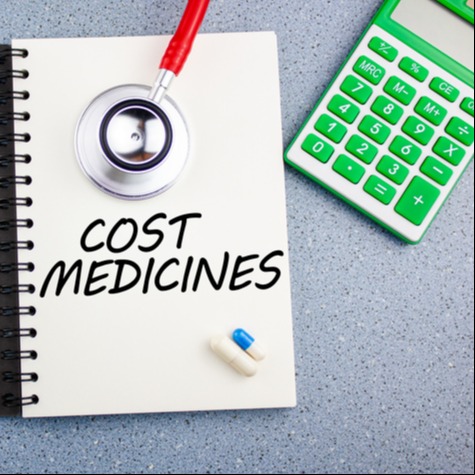
Eliquis (apixaban) is an anticoagulant (blood thinner) that helps to reduce blood clotting and reduces risk of stroke and systemic embolism in patients with nonvalvular atrial fibrillation. Eliquis is FDA-approved to treat and prevent certain types of dangerous blood clots that can block blood vessels in the body. The process of your blood clotting is called coagulation. Anticoagulants such as Eliquis (apixaban) make your blood less able to form clots.
Eliquis (apixaban) can get prescribed more frequently in the elderly due to their increased chances of blood clotting in more mature years of life. In short, the risk of blood clotting usually increases with age.
Key Takeaways
Common side effects in patients (over the age of 45) may include: increased risk of bleeding, bleeding gums, dizziness, easier time bruising, headache, nausea, nosebleeds, and melena.
Most side effects of Eliquis (apixaban) are fairly common. However, issues like headache, vomiting, and dizziness could be signs of internal bleeding that should be checked with a primary care provider.
11 Common Side Effects of Eliquis (Apixaban) in the Elderly
Here are some of the common side effects of Eliquis (apixaban) in the elderly:
1. Increased Risk of Bleeding:
In elderly patients, the body may be more sensitive to blood-thinning effects, increasing the likelihood of prolonged or excessive bleeding from even minor injuries. For those who are trying to avoid infections (i.e., if you have autoimmune disorders or issues) , this might be a side effect that they should know about.
2. Bleeding Gums:
Gums may bleed easily during brushing or flossing due to the effects on clotting. This can be particularly troublesome for elderly patients with dental issues or sensitive gums, and it may signal an increased bleeding tendency.
3. Dizziness:
Dizziness can occur from blood loss from internal or unnoticed minor bleeding. For older adults, dizziness poses an added fall risk, which could further complicate their health if they are injured while on anticoagulant therapy.
4. Easier Time Bruising:
Bruising happens when blood vessels under the skin are damaged, and Apixaban increases the likelihood of this by slowing the body’s clot formation. For older patients, this can lead to noticeable bruising even from slight bumps or pressure, making them more susceptible to skin and soft tissue injury.
5. Headache:
Headaches may arise from small internal bleeds, particularly if trauma has occurred. In the elderly, headaches should be closely monitored, as they can sometimes indicate a more serious internal bleeding issue, such as a hemorrhage in the brain.
6. Nausea:
Nausea may occur due to gastrointestinal irritation or a mild reaction to the medication. For elderly patients, nausea can lead to a decreased appetite, potentially impacting nutrition and overall well-being.
7. Nosebleeds:
Nosebleeds are common with blood thinners, as the delicate blood vessels in the nose can bleed more easily. Elderly patients may be more prone to this side effect due to dryness or age-related thinning of nasal tissues.
8. Pink or Brown Urine:
Discolored urine could indicate the presence of blood, known as hematuria. Apixaban can increase the risk of urinary tract bleeding, and elderly patients should report this symptom promptly as it may indicate a need for dose adjustment or further evaluation.
9. Melena:
Melena refers to black, tarry stools, which usually signify bleeding in the upper gastrointestinal tract. Since taking Apixaban can increase bleeding risk, any occurrence of melena in elderly patients needs urgent medical attention.
10. Vomit That Resembles Coffee Grounds:
This symptom indicates bleeding in the stomach or esophagus. The presence of partially digested blood in vomit is a medical emergency, especially for elderly individuals, as it could lead to significant blood loss or shock.
11. Weakness or Fatigue:
Weakness might result from anemia due to blood loss. For elderly patients, unexplained weakness may require testing to check for internal bleeding or assess hemoglobin levels.
Tips for Elderly Eliquis Patients
Here are some tips for elderly patients (65 and older):
Use Caution When Exercising:
Avoid activities that could lead to injury, like contact sports, and instead try safer exercises like swimming or walking. Wear a helmet when biking, skiing, or when doing other activities where there’s a chance of head injury.
Use Caution Around Sharp Objects:
While it may seem like “overkill,” wear gloves when using sharp objects like knives, scissors, and gardening tools. Use an electric razor instead of a manual one.
Use a Soft Toothbrush:
Use a soft toothbrush and waxed dental floss to clean your teeth. The soft bristles can help with gum bleeding and prevent further issues from arising.
Know What to Do If You Fall:
Take any fall seriously, even if it seems minor at first. Tell any emergency medical personnel that you take a blood thinner. If you’re not sure what to do and don’t want to call an emergency line, call your primary care physician for assistance.
Common Questions on an Anticoagulant (Blood-Thinner) for the Elderly
Many elderly patients who take blood-thinners have these common questions:
Do blood thinners make you cold and tired?
Sometimes, yes. There are several side effects that have been linked to blood thinners or an anticoagulant, such as nausea and low counts of cells in your blood. Low blood cell count can cause fatigue, weakness, dizziness and shortness of breath. In many cases, this can cause a patient to feel “cold” as well.
Does Eliquis (apixaban) cause you to lose weight?
Elderly patients may be watching their weight to ensure that they stay in optimal health. For many elderly patients (usually 65 and older), they are trying to maintain a certain body mass index. According to the FDA label for Eliquis, apixaban does not cause patients to lose weight.
Rely on PlanetDrugsDirect.com to Buy Online Eliquis
As a trusted prescription referral service, we offer important benefits whenever you order online. Each of our partner pharmacies and/or government-approved dispensaries is committed to providing the best experience possible of any online prescription referral service on the internet. We offer:
Low prices
Quick turn-around times
Generic and brand-name medications
Unparalleled customer service
Sources
Andersen, K. G., Rambaut, A., Lipkin, W. I., Holmes, E. C., & Garry, R. F. (2020). The proximal origin of SARS-CoV-2. Nature Medicine, 26(4), 450–452. https://doi.org/10.1038/s41591-020-0820-9
Cleveland Clinic. (2023). Prothrombin Gene Mutation. Cleveland Clinic. https://my.clevelandclinic.org/health/diseases/21810-prothrombin-gene-mutation
Sigma-Aldrich. (n.d.). Thrombins. Sigma-Aldrich Technical Documents. Retrieved November 4, 2024, from https://www.sigmaaldrich.com/US/en/technical-documents/technical-article/research-and-disease-areas/metabolism-research/thrombins
National Library of Medicine. (2023). Effects of Apixaban in Older Adults: A Systematic Review and Meta-analysis. National Center for Biotechnology Information. Retrieved from https://pmc.ncbi.nlm.nih.gov/articles/PMC10643025/
U.S. Food and Drug Administration. (2012). Eliquis (Apixaban) Label. FDA Drug Label Database. Retrieved from https://www.accessdata.fda.gov/drugsatfda_docs/label/2012/202155s000lbl.pdf
 Medically reviewed by
Medically reviewed by 





